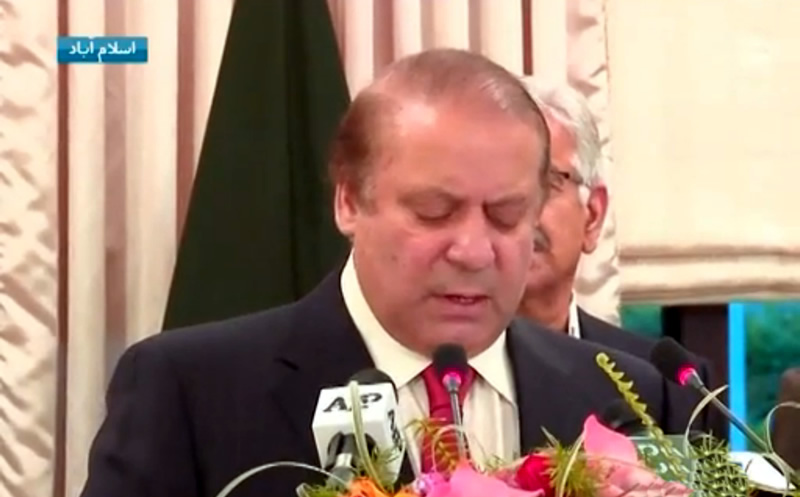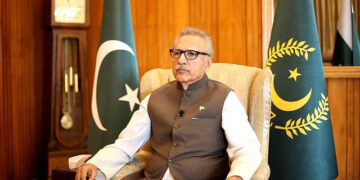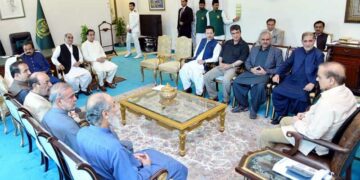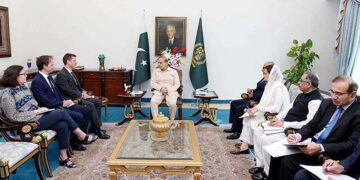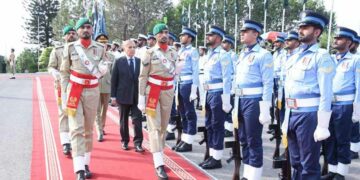Prime Minister Nawaz Sharif tried on Monday to soothe frayed nerves by reassuring Saudi Arabia and its Arab allies over a parliamentary resolution that had called for neutrality in the Yemen conflict.
[contentblock id=1 img=adsense.png]
In a short statement made in the evening, the prime minister reiterated his commitment to security of Saudi Arabia, calling it a strategic ally, but without committing to any military engagement in the Gulf region.
Mr Sharif, who stood in front of the cameras while some of his ministers and advisers were lined up behind him to provide moral support or endorsement, said: “Pakistan does not abandon friends and strategic partners, especially at a time when their security is under threat.” The short television appearance followed after he held yet another consultative session with his foreign policy and defence aides along with Chief of the Army Staff Gen Raheel Sharif — Defence Minister Khawaja Asif, Adviser on Foreign Affairs and National Security Sartaj Aziz, Special Assistant Tariq Fatmi and Foreign Secretary Aizaz Chaudhry were present at the meeting.
[contentblock id=2 img=gcb.png]
The brief speech, which was described by his office as a “policy statement on Yemen”, was interpreted as a formal clarification from the country’s highest political office after Friday’s parliamentary resolution provoked a hostile response from a UAE minister, which was seen as reflective of the general mood in the Gulf. The parliamentary resolution, which followed five days of debate, had asked Pakistan to “maintain neutrality in the Yemen conflict so as to be able to play a proactive diplomatic role to end the crisis”.
Read More: PM Nawaz Sharif Leaves for Turkey, to Discuss Yemen Crisis
In other words, the resolution made it clear that Pakistan would not send its troops as had been requested by Saudi Arabia. The call for ‘neutrality’ provoked a strong reaction; the UAE minister of state for foreign affairs warned Pakistan that it would pay a “high price” for its “ambiguous stand”. While there was no other public reaction, most agree that there was behind-the-scene pressure from other Arab capitals. This was evident from Mr Sharif’s words when he said: “We are also in touch with other GCC countries to assure them that their disappointment was based on an apparent misinterpretation of parliament’s resolution.”
[contentblock id=3 img=adsense.png]
However, the reassurance went only so far because he stood by the parliamentary resolution noting that it “strengthened the hands of the government for playing a positive and constructive role”. The kingdom was reassured by pointing out that it was a strategic ally; that Pakistan was committed to the sanctity of the two Holy Mosques and Saudi sovereignty, territorial integrity and stability; and that Pakistan would stand by the Saudis.
PM Nawaz Sharif makes damage control move by timesofpakistan-DM


